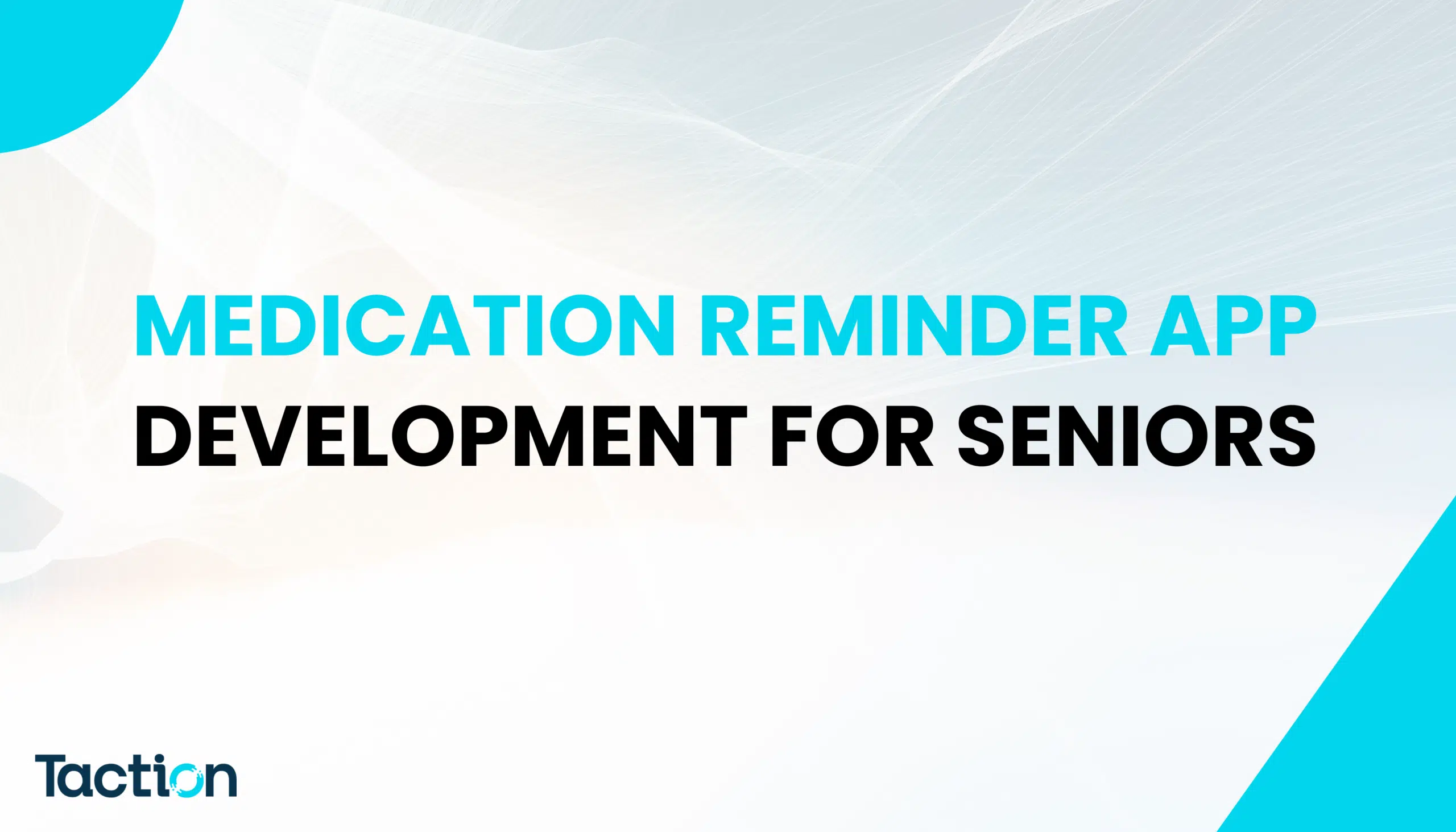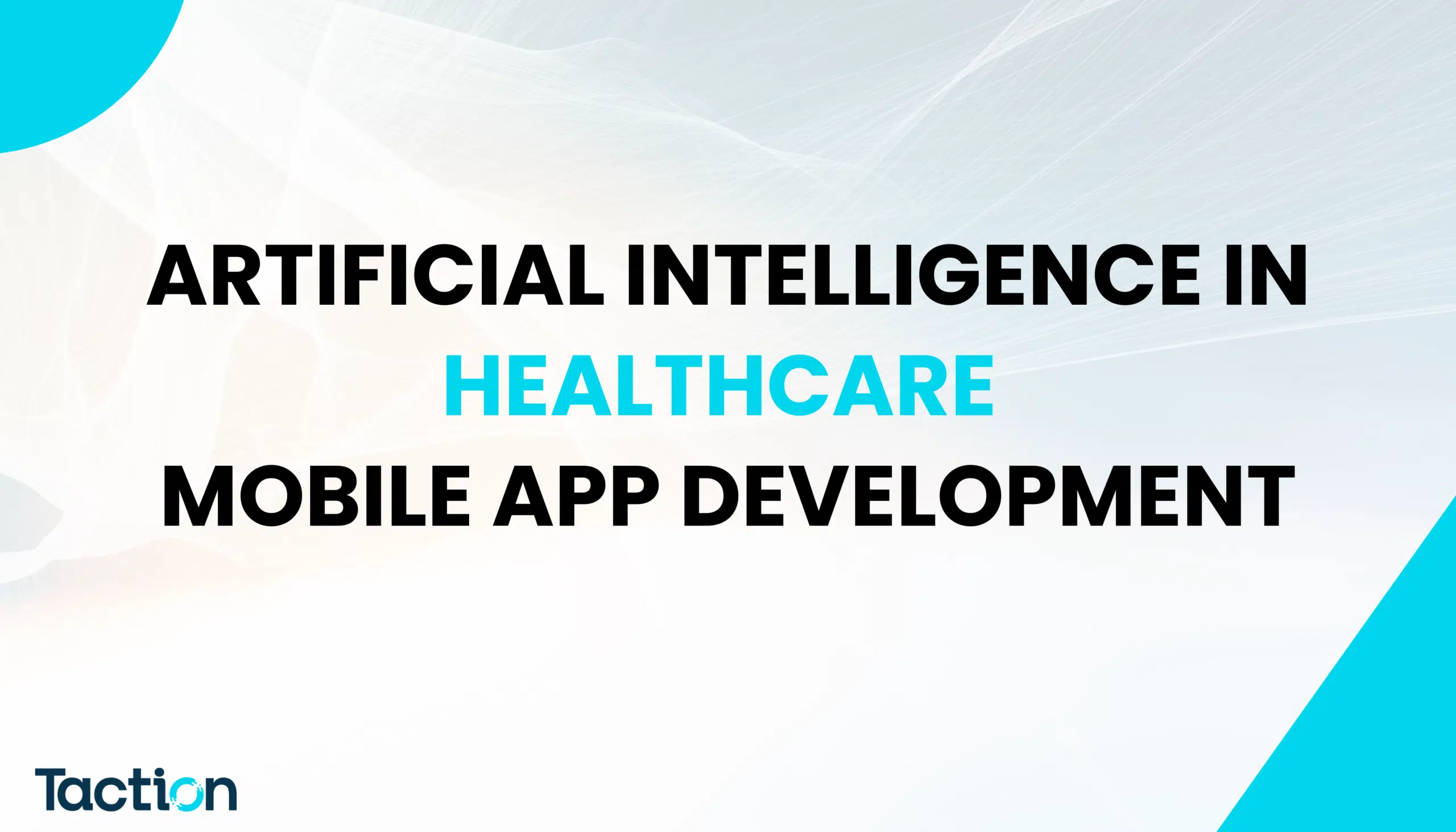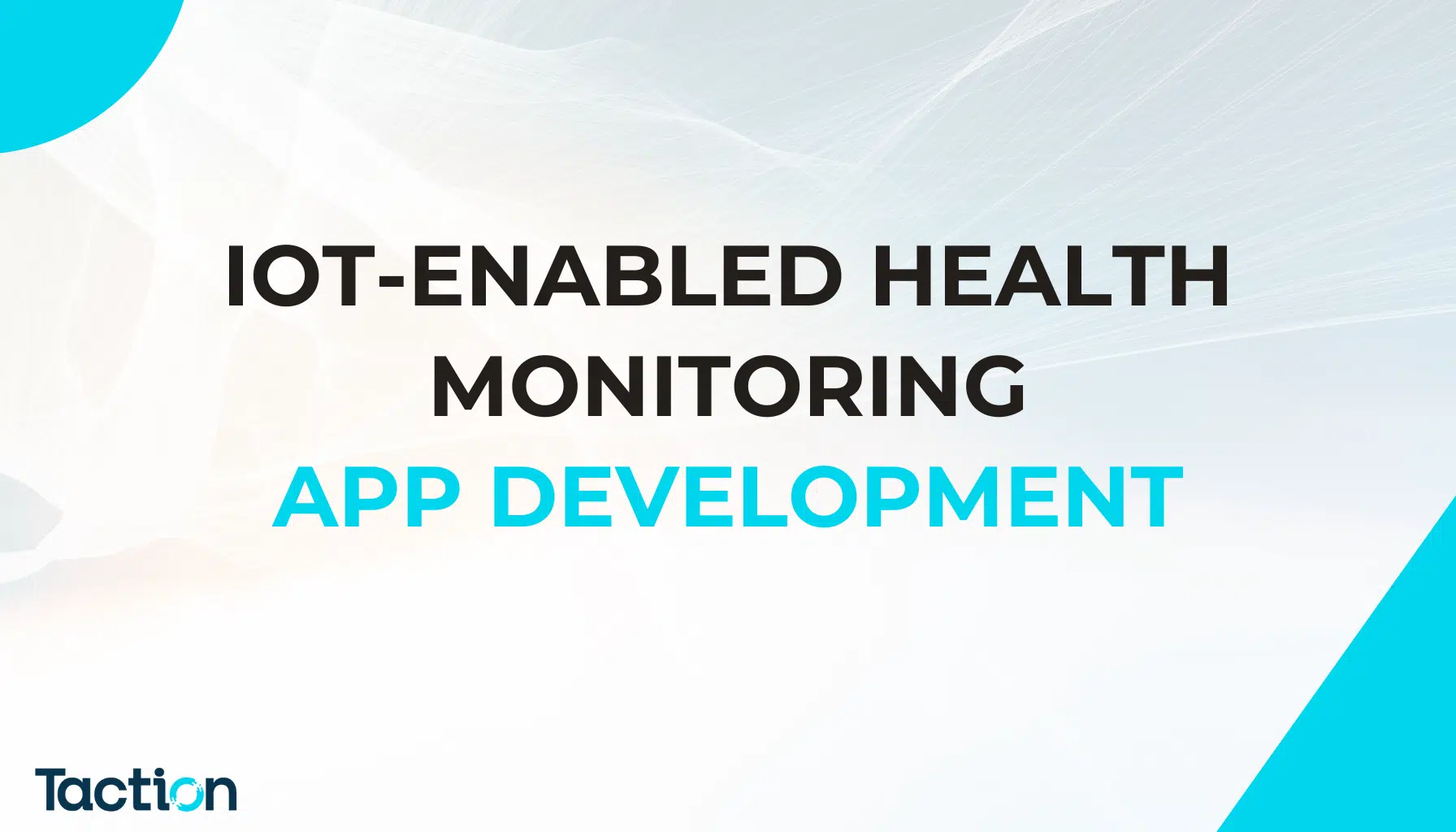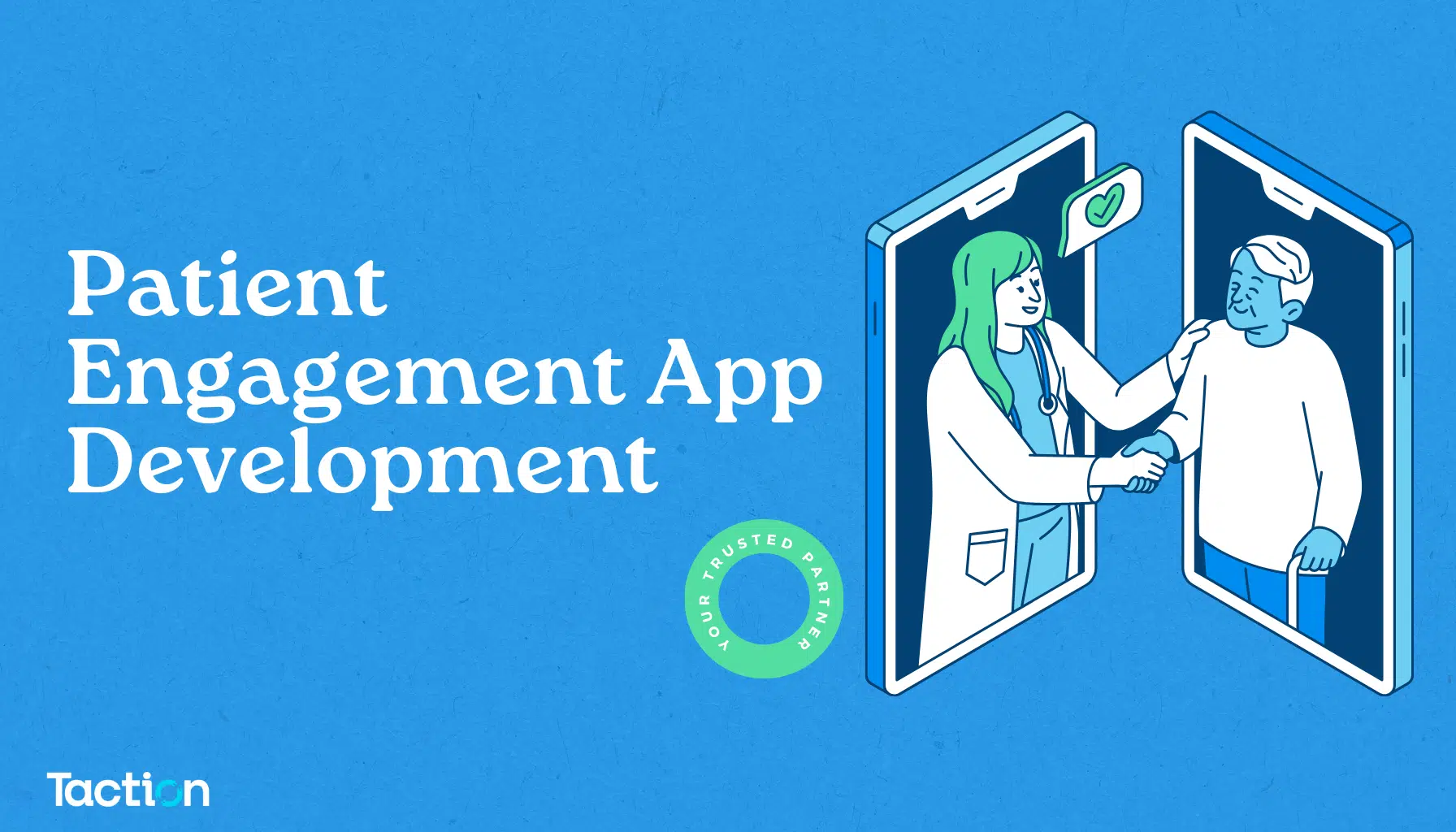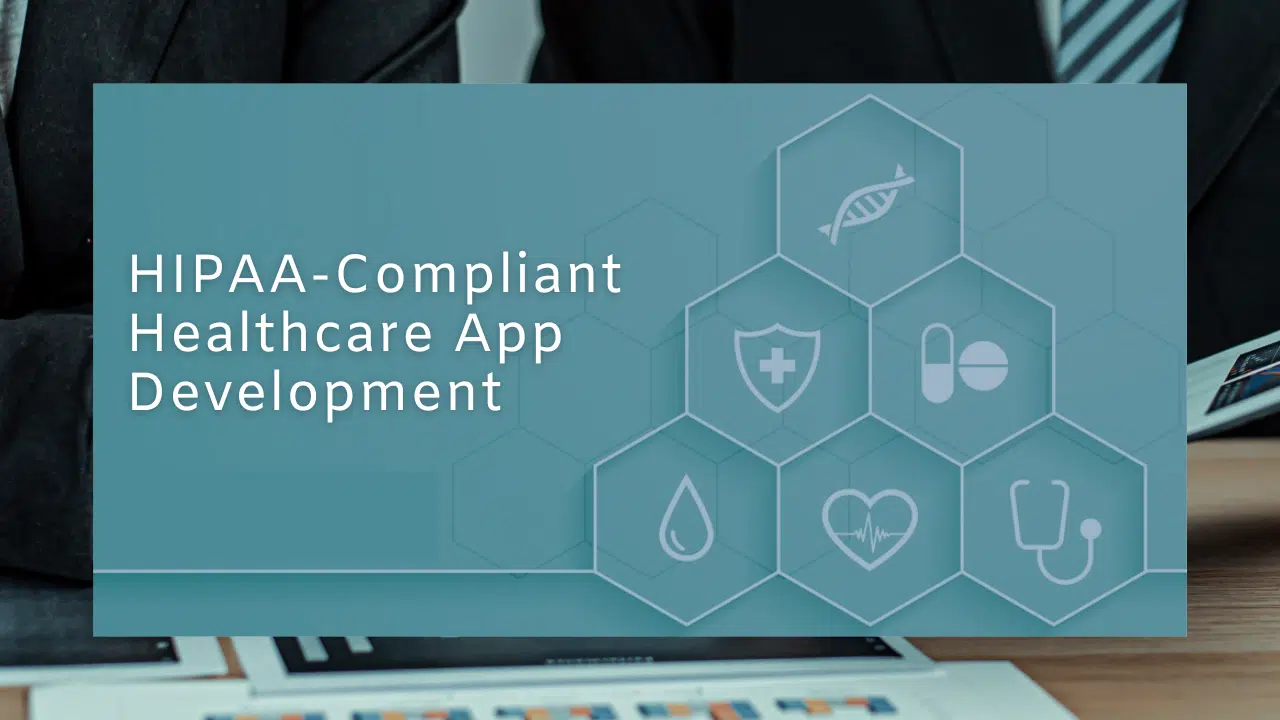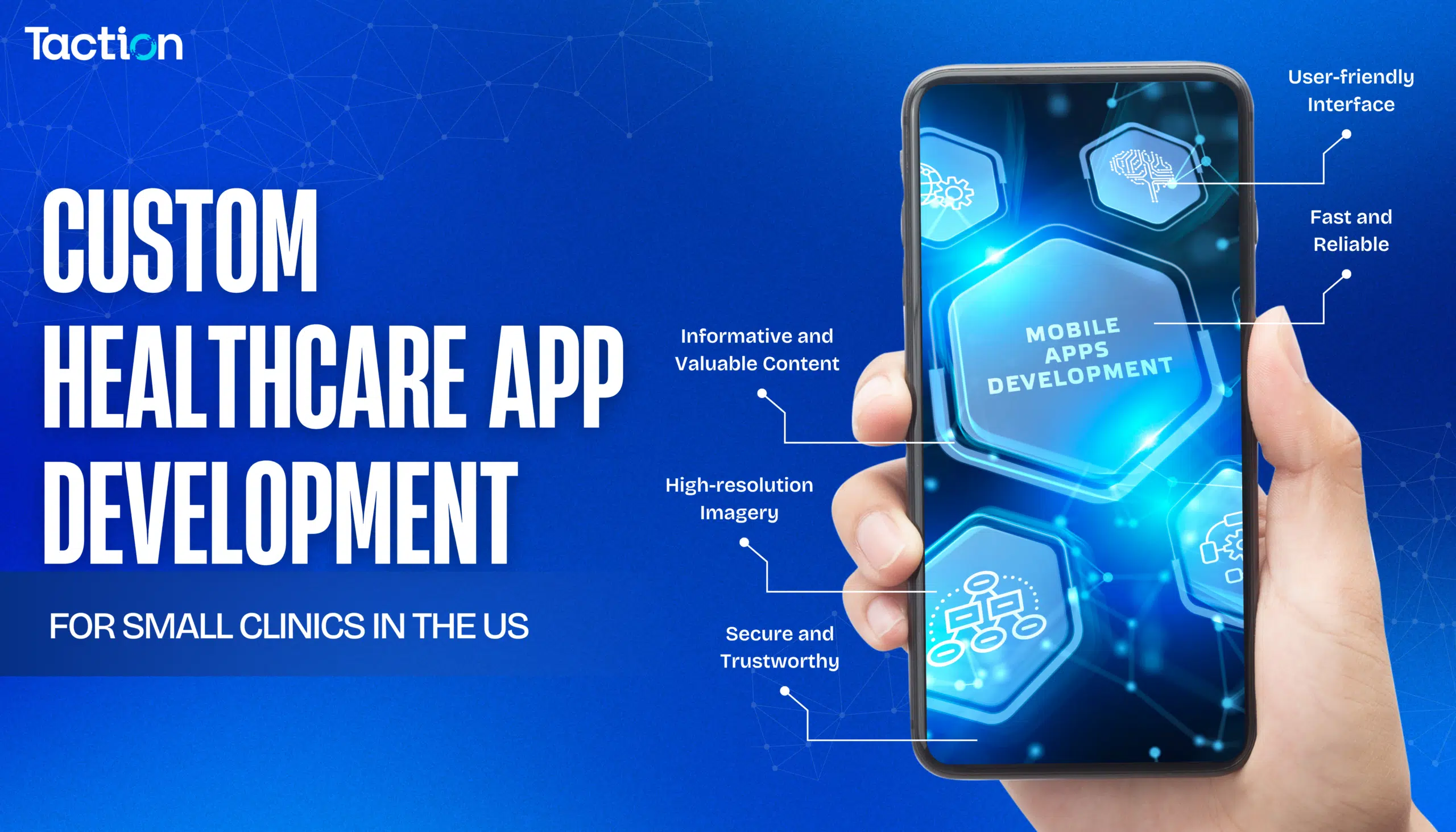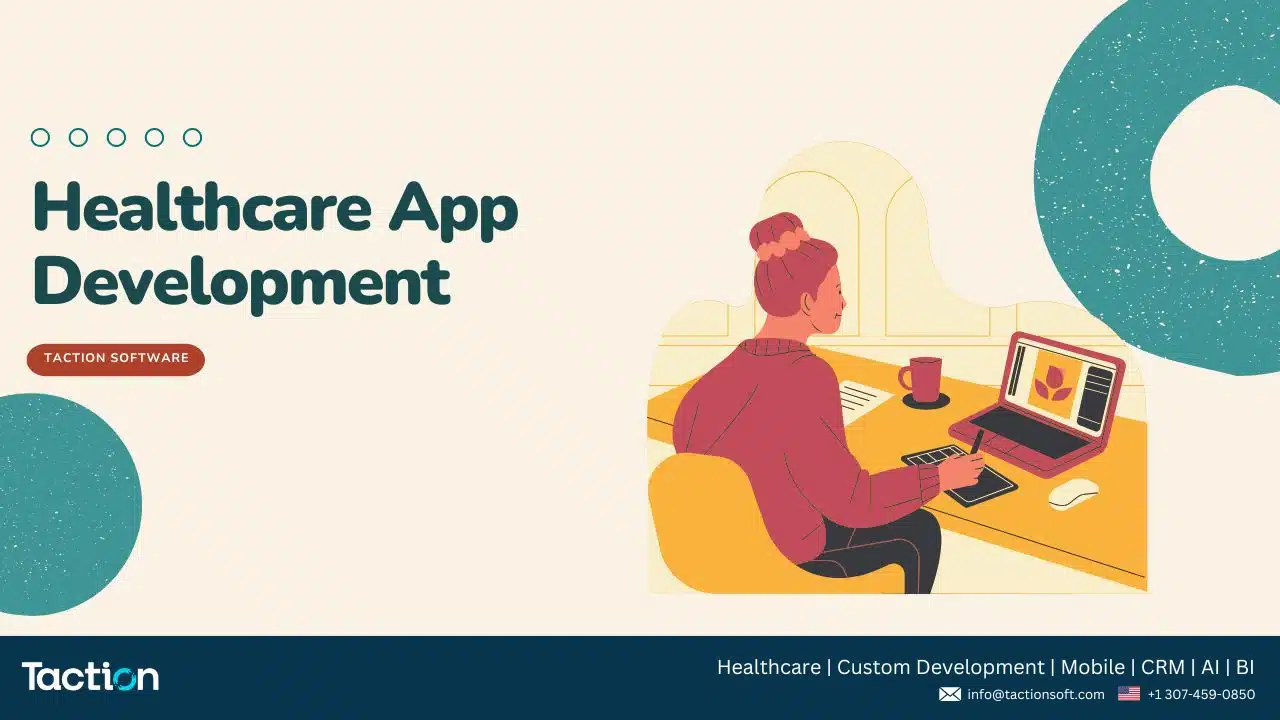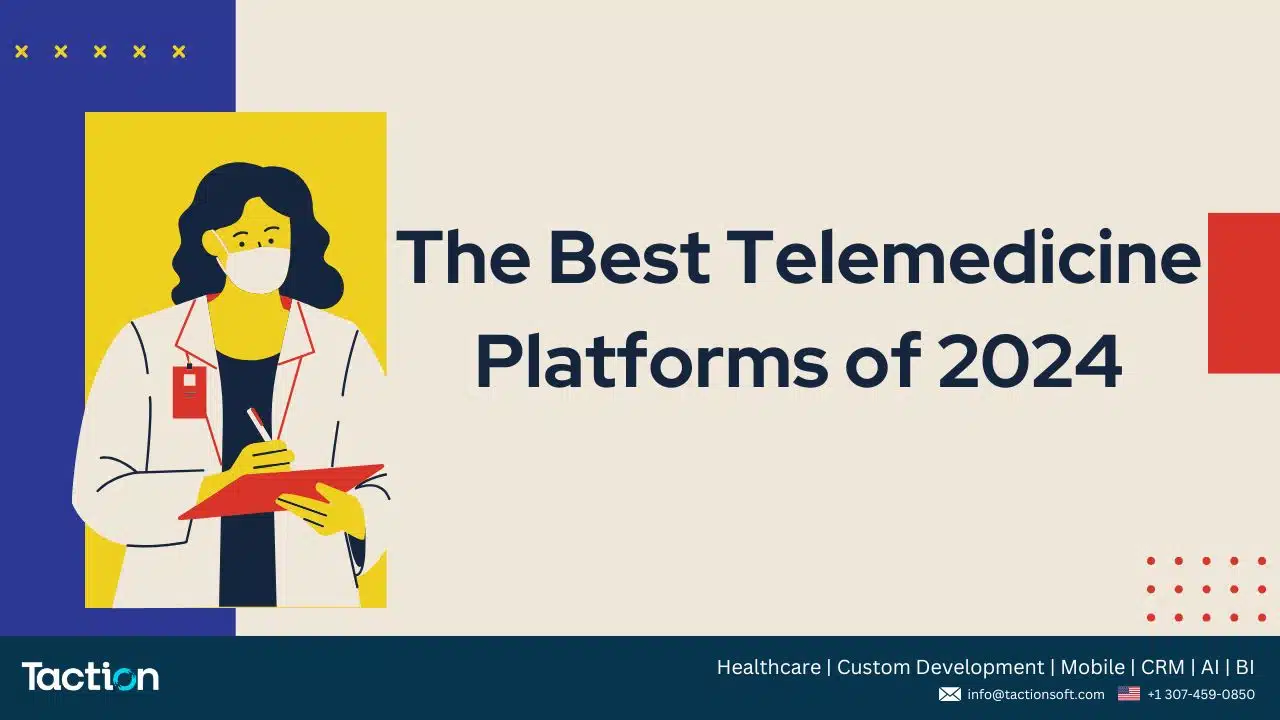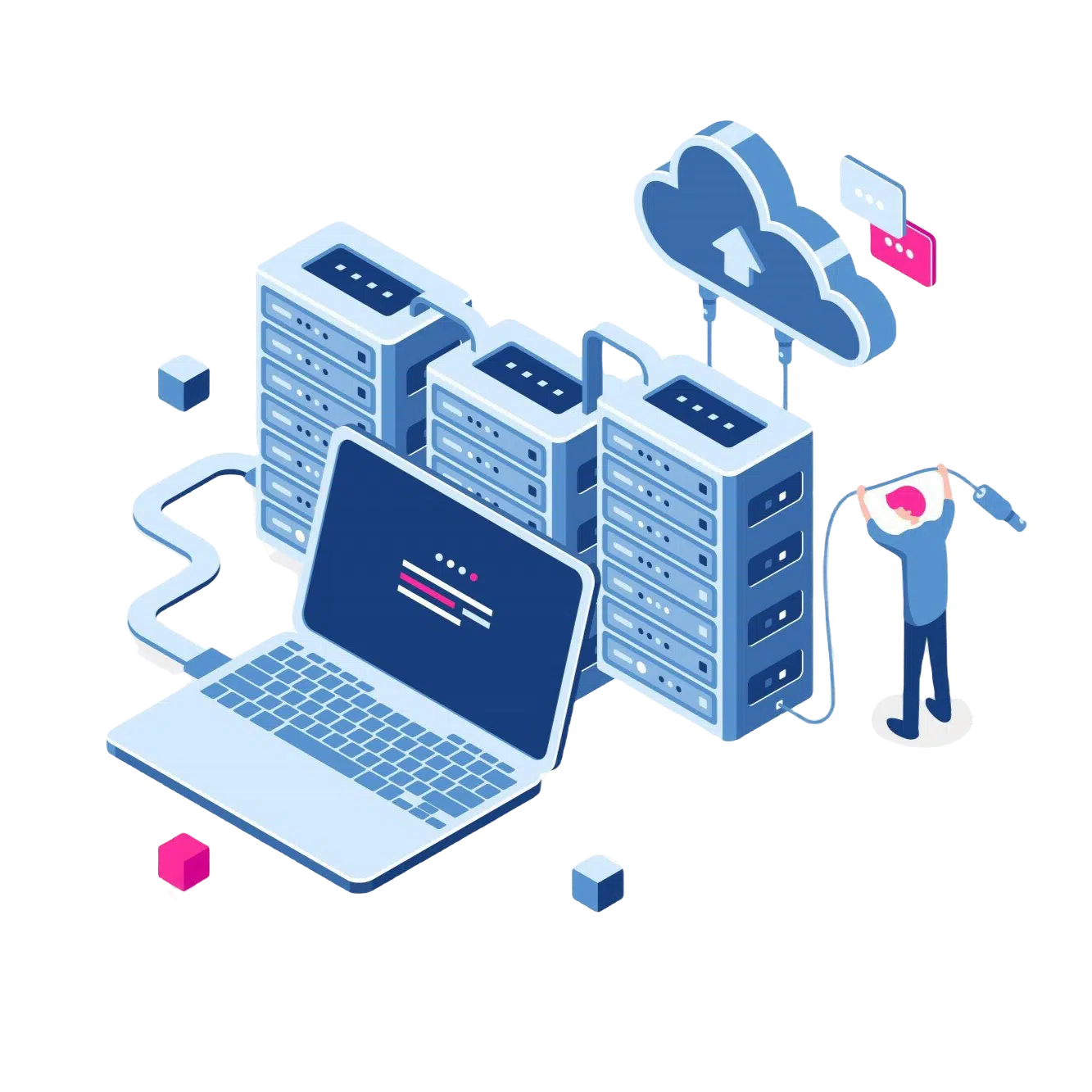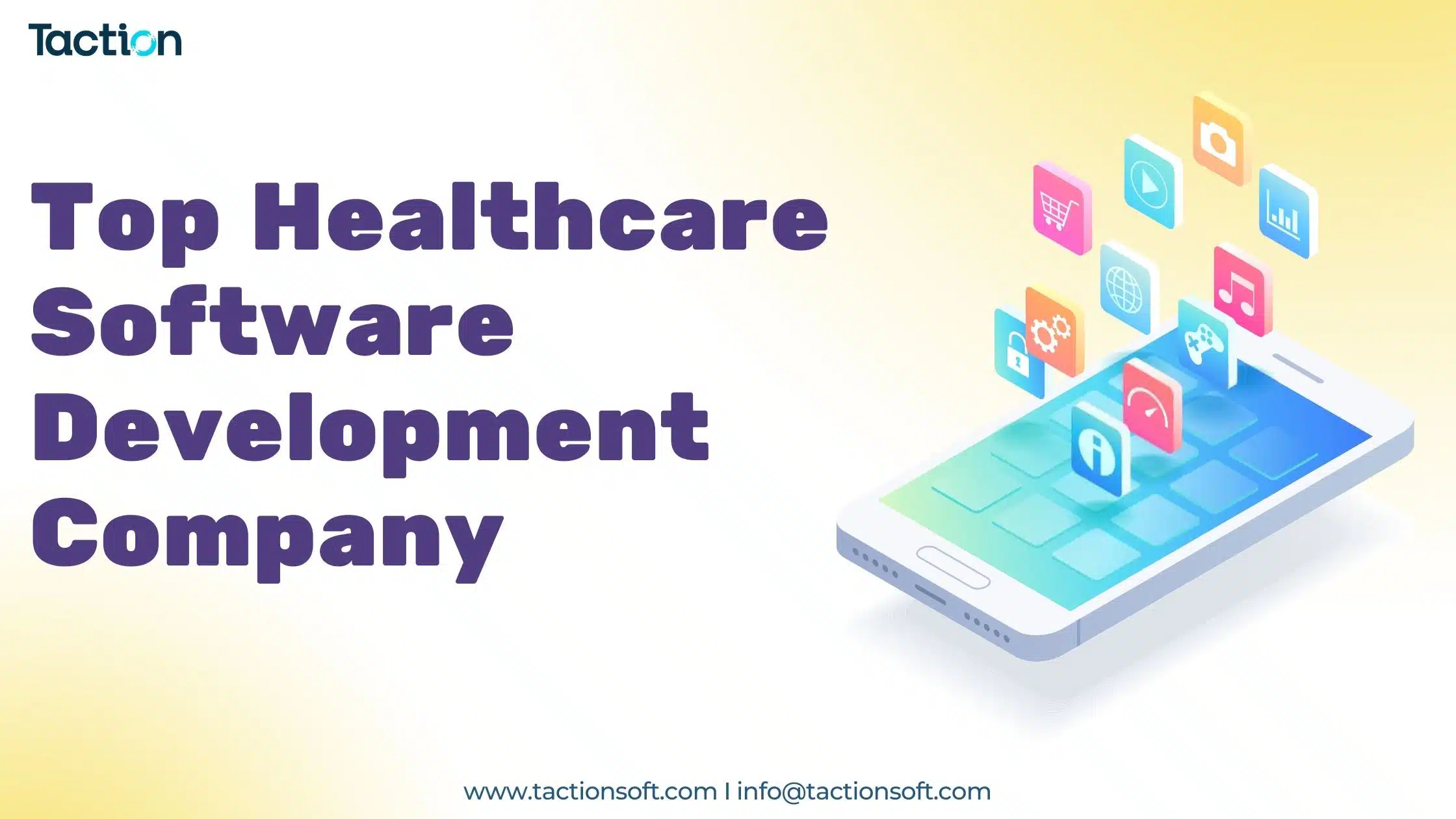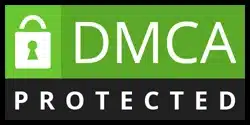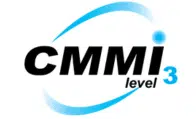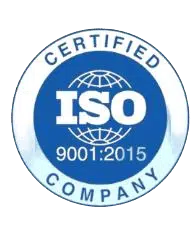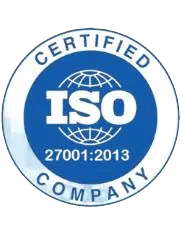We Built the Best Medication Reminder App Development for Seniors As people age, managing medications becomes increasingly challenging. Seniors often juggle multiple prescriptions with complex dosages, making it easy to forget a dose or take the wrong medication at the wrong time. Missed or incorrect doses can lead to serious health complications, hospitalizations, or even life-threatening situations. This growing concern has led to the rise of medication reminder apps—digital solutions designed to help seniors stay on track with their prescriptions. However, not all medication reminder apps are built with seniors in mind. Many lack user-friendly interfaces, real-time alerts for caregivers, or essential compliance features that ensure safety and adherence. Recognizing this gap, Taction Software leveraged its 20+ years of expertise in healthcare IT to build a best-in-class medication reminder app tailored specifically for seniors. What makes our app different? Beyond just setting reminders, it offers personalized medication schedules, real-time notifications, caregiver connectivity, voice-assisted reminders, and HIPAA-compliant security measures. Designed with simplicity and accessibility in mind, the app features large fonts, intuitive navigation, and easy-to-understand alerts, ensuring seniors can use it effortlessly. Additionally, integration with electronic health records (EHRs) and pharmacy systems makes prescription management seamless. At Taction Software, we believe that technology should empower seniors to maintain independence and take control of their health. Our medication reminder app isn’t just another tool—it’s a lifesaving companion designed to enhance medication adherence and improve overall well-being. Why Seniors Need a Medication Reminder App? Medication adherence is a critical aspect of senior healthcare, yet it remains a widespread challenge. Studies show that nearly 50% of seniors do not take their medications as prescribed, leading to increased hospitalizations, deteriorating health conditions, and even preventable fatalities. Non-adherence can result from forgetfulness, cognitive decline, complex medication schedules, or difficulty managing multiple prescriptions—issues that become more common as people age. For seniors with chronic conditions like diabetes, heart disease, or hypertension, missing a dose can have severe consequences, including sudden spikes in blood pressure, blood sugar fluctuations, or worsened symptoms. The challenge is even greater for those prescribed multiple medications at different times of the day, requiring strict compliance to avoid drug interactions or ineffectiveness. A medication reminder app solves this problem by providing timely alerts, tracking medication history, and ensuring caregivers stay informed. It eliminates confusion, prevents missed doses, and fosters better adherence, ultimately improving health outcomes and reducing emergency visits. With technology-driven solutions, seniors can regain control over their medication schedules, ensuring they stay on top of their health without added stress. Key Features of an Ideal Medication Reminder App for Seniors A medication reminder app should do more than just send notifications—it must be designed with seniors in mind, prioritizing ease of use, security, and caregiver involvement. Here are the essential features that make a medication reminder app truly effective for seniors: User-Friendly Interface with Large Fonts & Voice Assistance Seniors often struggle with small text, complex menus, and hard-to-navigate interfaces. A well-designed medication reminder app should feature large, high-contrast fonts, intuitive icons, and simple navigation to ensure ease of use. Voice assistance is another critical feature, allowing seniors to set reminders, confirm doses, or request information using voice commands, reducing the need for manual input. Touch-friendly buttons and accessibility settings further enhance usability, making the app intuitive for users with vision or motor impairments. Smart Alerts and Personalized Reminders A good reminder system is more than just a basic alarm—it should be customizable to match each senior’s medication schedule. Whether through SMS, phone calls, app notifications, or smart home device alerts, seniors can receive timely reminders in the format they prefer. Additionally, the app can track adherence and send real-time confirmation to caregivers or healthcare providers, ensuring compliance and intervention when necessary. Family & Caregiver Connectivity Many seniors rely on family members or caregivers to help manage their medications. A reliable app should include real-time caregiver connectivity, allowing loved ones to receive alerts when a dose is missed, track adherence trends, and intervene when necessary. This feature provides peace of mind for families while ensuring seniors stay consistent with their medication regimens. Medication Refill & Dosage Tracking Running out of essential medication can have serious consequences. An advanced medication reminder app should send automated alerts when a prescription is running low and offer seamless integration with pharmacies for easy refills. Additionally, dosage tracking helps prevent overdosing or skipping doses, ensuring the correct medication is taken at the right time. HIPAA-Compliant Security and Data Privacy Security is crucial when dealing with sensitive medical data. The app must adhere to HIPAA (Health Insurance Portability and Accountability Act) guidelines, ensuring all health information remains private and protected. End-to-end encryption, secure cloud storage, and strict access controls help prevent unauthorized access, safeguarding personal health records from breaches. By combining these essential features, a medication reminder app can significantly enhance medication adherence for seniors, improve their overall health, and provide caregivers with the tools needed to offer better support. How Taction Software Built the Best Medication Reminder App? At Taction Software, we leveraged our 20+ years of expertise in healthcare IT to develop a cutting-edge medication reminder app designed specifically for seniors. Our development process was guided by deep industry knowledge, collaboration with healthcare professionals, and the latest technological advancements to ensure seamless medication management and improved adherence. A Patient-Centric Development Approach Understanding the challenges seniors face in medication adherence, we worked closely with doctors, pharmacists, and geriatric care specialists to design an app that prioritizes usability, accuracy, and compliance with healthcare regulations. The goal was to create an app that simplifies medication tracking while integrating advanced features for real-time monitoring and caregiver connectivity. Leveraging AI and Machine Learning for Smart Medication Management Our app goes beyond basic reminders by incorporating AI and machine learning to analyze user behavior and predict medication adherence patterns. It adjusts reminders based on user habits, detects potential non-compliance, and provides intelligent recommendations to caregivers and healthcare providers. This proactive approach ensures that seniors receive personalized support tailored to their needs. Seamless
Artificial Intelligence in Healthcare Mobile App Development The healthcare industry is experiencing a transformation through (Artificial Intelligence) AI which boosts mobile application capabilities by improving diagnostic accuracy and streamlining clinical tasks while boosting patient interaction. AI transforms healthcare delivery and management through advanced symptom checkers and analytic tools as well as chatbots that support telemedicine services. Taction Software leverages 19 years of healthcare IT knowledge to develop AI-powered mobile healthcare applications that combine cutting-edge AI technology with practical medical needs. Our solutions enhance clinical efficiency and patient care while securing data to comply with HIPAA and other regulatory standards. This article examines AI’s impact on healthcare mobile app development by examining key technologies that drive these changes and discussing real-world applications while addressing challenges and future trends. This guide provides healthcare providers, startups, and enterprises looking to adopt AI with insights into the benefits of AI-powered healthcare mobile apps. Why AI is Revolutionizing Healthcare Mobile Apps? Despite widespread adoption in healthcare mobile applications users face persistent obstacles including inefficient patient management delayed diagnostics data security risks and insufficient personalization features. EHR system integration challenges plague many healthcare apps resulting in disjointed patient care and manual processing that delays treatment processes. The massive amount of healthcare data presents significant challenges in generating useful insights without utilizing advanced technological solutions. AI improves healthcare applications through better efficiency and accuracy while providing personalized care solutions. Machine Learning (ML) algorithms process substantial patient data volumes to produce real-time insights along with predictive diagnoses and customized treatment plans. AI chatbots deliver round-the-clock virtual support which helps shorten patient waiting periods and increases overall engagement. The Natural Language Processing (NLP) technology allows physicians to convert spoken clinical information into written documentation which saves them time. Key AI-driven features in healthcare mobile apps include: AI-powered symptom checkers for early diagnosis. Predictive analytics to detect potential health risks. Automated appointment scheduling for seamless patient flow. Remote patient monitoring (RPM) with AI-integrated wearables. AI-enhanced drug discovery and clinical decision support. Through the adoption of artificial intelligence technologies healthcare providers are able to offer more accurate data-based and widely accessible care which leads to improved patient results and enhanced operational effectiveness. Harness the power of AI in healthcare mobile app development. Let’s create innovative, compliant, and intelligent solutions together! Get Started Key AI Technologies Powering Healthcare Mobile Apps The healthcare industry is experiencing a digital transformation as Artificial Intelligence brings advanced diagnostic tools to healthcare mobile apps with automation capabilities that tailor patient care. AI-powered innovations are defining the next stage of healthcare mobile application development. Machine Learning for Personalized Patient Care Machine Learning (ML) is revolutionizing predictive analytics while simultaneously improving patient monitoring and early diagnosis of diseases. Machine Learning algorithms analyze extensive patient data to detect patterns which allow them to forecast health risks before symptoms emerge. ML technology functions as a vital tool for chronic disease management by tracking diabetes and hypertension and offering individualized treatment solutions. ML-powered early diagnosis models enhance disease detection accuracy for conditions like cancer which results in fewer invasive diagnostic procedures. Natural Language Processing (NLP) in Virtual Assistants NLP technology allows chatbots and virtual assistants to manage patient interactions more effectively by enhancing response time while maintaining accessibility. Voice recognition software enabled by artificial intelligence enables doctors to transcribe medical notes without using their hands. Virtual assistants provide patient support through answering questions and scheduling appointments while also analyzing speech patterns to identify potential neurological conditions such as Alzheimer’s and Parkinson’s. Computer Vision in Medical Imaging & Diagnostics Medical imaging diagnostics gets improved through computer vision systems powered by Artificial Intelligence which benefits radiology and MRI analysis. Machine learning algorithms developed from extensive data sets demonstrate exceptional accuracy when identifying tumors as well as fractures and anomalies from X-ray, CT scan, and MRI images. AI systems help pathologists by automating the detection of abnormal cell patterns which enables quicker disease diagnoses. Deep Learning & AI-driven Decision Support Systems Deep Learning technology supports clinical decision-making processes while advancing precision medicine and facilitating drug discovery research. Physicians receive evidence-based treatment recommendations from AI models trained on comprehensive medical records which help minimize diagnostic errors in complex cases. Deep learning speeds up pharmaceutical research by studying molecular structures to predict side effects which facilitates quicker development of new medications. The application of AI technologies extends beyond healthcare mobile apps by transforming healthcare delivery into a more effective, customized, and precise system. Real-World Applications of AI in Healthcare Mobile Apps Artificial Intelligence revolutionizes healthcare mobile applications through process automation which bolsters patient interaction while also increasing medical precision. This section outlines several significant applications where AI technology benefits healthcare mobile applications. AI-Driven Symptom Checkers & Virtual Doctors AI-driven symptom checkers analyze users’ symptoms through extensive medical databases to offer initial health evaluations. Patients benefit from virtual doctors that use NLP and machine learning to help them self-diagnose and direct them toward appropriate healthcare services while minimizing unnecessary clinic visits. Smart Appointment Scheduling & Patient Engagement AI systems enhance scheduling appointments by evaluating patient history together with doctor availability and prioritizing cases based on urgency levels. Smart scheduling cuts down waiting periods while avoiding appointment clashes and maintains orderly patient movement. Through personalized reminders and medication alerts along with follow-up notifications AI-powered chatbots enhance patient engagement and treatment plan adherence. AI-Powered Medical Transcription for Streamlined Documentation A substantial portion of doctors’ time goes towards completing medical documentation tasks. AI-driven speech-to-text transcription solutions automate the medical documentation process which transforms spoken commands into organized medical records. Through this technology physicians can dedicate more time to patient care while experiencing reduced administrative duties and achieving greater documentation precision. Wearable Health Monitoring Apps (AI-Powered Insights on Vitals) AI-powered wearables monitor live health data covering heart rate measurements alongside oxygen levels together with sleep patterns and physical activity assessments. Health apps employ machine learning methods to evaluate data for detecting irregularities and predicting health risks along with delivering tailored health recommendations. AI in Remote Patient Monitoring & Chronic Disease Management
Transforming Healthcare with IoT-Enabled Health Monitoring Rapid transformation of the United States healthcare sector sees IoT health monitoring systems as essential components which significantly boost both patient care quality and clinical operations. The increasing prevalence of chronic diseases and aging populations along with higher demands for remote healthcare services have made IoT-based health monitoring systems essential game-changing tools. Healthcare outcomes improve significantly through advanced solutions that use connected medical devices and AI-driven analytics along with cloud integration to deliver real-time patient insights. Remote Patient Monitoring stands out as one of the most substantial IoT applications within the healthcare industry. Physicians gain the ability to observe vital signs continuously and detect early warning signals through data from wearable sensors and medical devices which enables them to intervene proactively and decrease emergency visits and hospital readmissions. Patients benefit from enhanced healthcare accessibility as well as customized health information which leads to an improved life quality while reducing the need for regular physical appointments. Taction Software delivers 19 years of healthcare technology experience through developing IoT-enabled custom health monitoring applications. Our healthcare solutions empower providers and hospitals to deliver high-quality patient care by implementing secure, scalable IoT integrations that comply with HIPAA standards. IoT-based health monitoring systems provide real-time data that enables both healthcare providers and patients to make informed decisions. The ability to track heart rate, blood pressure, glucose levels and ECG readings transforms preventive healthcare while enhancing the reach and operational effectiveness of remote medical services. What is IoT-Enabled Health Monitoring? The Internet of Things (IoT) supports healthcare transformation by connecting medical devices and sensors to wearables and mobile apps in real-time patient health monitoring systems. With continuous data collection and analysis capabilities this technology delivers vital information to healthcare professionals who use this data to improve patient treatment and care approaches. The fundamental component of healthcare IoT technology is Remote Patient Monitoring which enables doctors to track patients from remote locations outside of hospitals. Doctors have real-time access to patient vitals including heart rate and ECG readings through IoT-enabled healthcare systems which eliminates the need for regular physical check-ups. Early disease detection benefits from these systems while emergency hospitalizations decrease and proactive intervention receives stronger support. Health monitoring systems that use IoT technology work by connecting multiple smart devices together. Smartwatches and medical devices such as ECG monitors and pulse oximeters collect patient biometrics that healthcare providers receive through cloud service platforms. AI-driven analytics processes the collected data to send alerts for unusual patterns while delivering health advice tailored to patients through mobile applications. IoT-enabled health monitoring systems that combine IoT devices with mobile applications and cloud analytics improve chronic disease management while transforming healthcare service delivery to be more accessible, efficient, and patient-focused. Key Benefits of IoT-Enabled Health Monitoring Apps IoT-enabled health monitoring applications are revolutionizing healthcare provider methods for tracking diagnoses and managing patient health. Smart systems that improve patient care through real-time insights and proactive interventions lead to more accessible and efficient healthcare. Real-time Health Data Tracking & Monitoring IoT-enabled mobile devices constantly gather key health information including heart rate and oxygen saturation levels (SpO2) and send it along with ECG readings and blood pressure measurements as well as glucose level data. A combination of wearable fitness trackers medical-grade smartwatches pulse oximeters and implantable sensors enables continuous health monitoring at all times. The connection to cloud services allows patients and healthcare providers to access health data immediately which facilitates fast medical decisions and prompt interventions. Remote Patient Monitoring for Chronic Disease Management Chronic condition patients such as those with diabetes, hypertension and cardiovascular diseases benefit greatly from IoT-based Remote Patient Monitoring (RPM) which serves as a transformative healthcare solution. Through these applications doctors can remotely track vital signs while evaluating data trends and updating treatment plans as necessary. IoT health monitoring systems minimize the necessity for routine face-to-face appointments which improves patient convenience while also boosting medication compliance and reducing hospital readmission numbers. Early Detection and Alerts Predicting health risks becomes more effective through the application of advanced AI-powered analytics. The IoT-enabled health monitoring applications detect abnormalities like irregular heart rhythms and sudden blood sugar increases to immediately inform medical professionals and emergency responders. The real-time alert system functions as a preventive measure against medical emergencies through its capacity to enable early intervention and proactive healthcare management. Data-Driven Personalized Healthcare IoT-enabled applications utilize cloud-based platforms to store patient health data for long-term processing and analysis. This approach allows precision medicine which designs treatment plans based on a person’s specific health patterns and lifestyle habits. Artificial intelligence insights enable optimized treatment methods while boosting patient participation and achieving superior healthcare results. With these benefits, IoT-enabled health monitoring apps are reshaping the future of healthcare, offering proactive, data-driven, and patient-centric medical solutions. Essential Features of an IoT-Enabled Health Monitoring App A health monitoring application enabled by IoT technology requires advanced features to maintain continuous data capture and provide real-time analysis with proactive healthcare responses. Essential features improve patient monitoring capabilities while also increasing diagnosis precision and remote healthcare management effectiveness. Integration with IoT Wearables & Medical Devices An IoT-based health monitoring system achieves its full potential when it can integrate smoothly with different smart medical devices. Smartwatches and medical devices such as ECG monitors, pulse oximeters, BP monitors, glucometers, and implantable sensors form part of the system’s integration framework. The application needs to handle real-time data streaming from wearable devices to provide uninterrupted health monitoring while delivering precise diagnostic outcomes. Cloud-Based Storage and Real-Time Data Syncing Secure cloud-based infrastructure supports immediate data synchronization and enables users to access information from anywhere. HIPAA-compliant servers are required to store all patient data to ensure protection of sensitive health records. Real-time data synchronization enables healthcare providers to review the latest health reports and monitor trends to make prompt medical decisions. AI and Machine Learning for Predictive Analysis IoT-enabled health monitoring apps use AI and machine learning algorithms to process massive data sets while identifying health anomalies and predicting future health risks.
Patient engagement app development company for US In today’s rapidly evolving healthcare landscape, patient engagement is more than just a buzzword—it’s a necessity. Engaged patients are empowered patients, actively participating in their own healthcare journeys, leading to better outcomes, improved satisfaction, and reduced costs for providers. Modern healthcare systems are moving beyond traditional interactions, leveraging digital technologies to foster stronger relationships between patients and providers. This shift not only enhances the quality of care but also aligns with the broader goals of value-based care. At the forefront of this transformation is Taction Software, a trusted name in patient engagement app development for US-based healthcare providers. With years of experience and deep expertise in healthcare technology, we design innovative, user-friendly solutions tailored to meet the unique needs of providers and patients. Our apps are built to bridge communication gaps, streamline processes, and empower patients with tools like appointment scheduling, secure messaging, remote monitoring, and personalized health education. Recognized for its commitment to compliance with regulations like HIPAA and interoperability standards such as FHIR, Taction Software is redefining how healthcare providers engage with their patients. Together, we’re not just building apps; we’re building the future of patient care. Understanding the Role of Patient Engagement in Modern Healthcare Patient engagement has become a cornerstone of effective healthcare delivery in the modern era. It represents the collaboration between healthcare providers and patients to foster informed decision-making, active participation, and a stronger commitment to achieving better health outcomes. By placing patients at the center of care, engagement initiatives drive a more personalized and efficient approach to healthcare, benefiting both providers and patients alike. Why Patient Engagement is Crucial for Better Health Outcomes Effective patient engagement directly influences treatment adherence, preventive care, and overall satisfaction. When patients are actively involved in their healthcare, they are more likely to adhere to prescribed treatments, attend follow-up appointments, and embrace preventive measures like routine screenings and vaccinations. This leads to improved disease management, early detection of health issues, and reduced hospital readmissions. Moreover, engaged patients report higher levels of satisfaction, as they feel empowered to make informed decisions about their care. They benefit from improved communication with providers, access to educational resources, and tools that simplify the healthcare experience. This not only enhances the patient’s quality of life but also drives positive outcomes for healthcare organizations by fostering loyalty and reducing administrative burdens. Patient Engagement Trends in the US Healthcare Industry In the US, healthcare is evolving rapidly, with patient engagement being a key driver of innovation. Value-based care models, which prioritize outcomes over services provided, are placing patient engagement at the forefront. Digital health platforms are enabling seamless access to care, offering features like remote patient monitoring, secure messaging, and health tracking. Telehealth has also emerged as a significant trend, providing patients with virtual consultations and continuous access to their providers. Additionally, the integration of wearable devices and mobile health apps is enhancing the way patients monitor their health and interact with their care teams. These trends underscore the growing importance of technology in transforming patient engagement and achieving better healthcare outcomes. Build trust with HIPAA-compliant apps! Contact us today to ensure security and compliance. Connect with experts Understanding the Role of Patient Engagement in Modern Healthcare Patient engagement has become a cornerstone of effective healthcare delivery in the modern era. It represents the collaboration between healthcare providers and patients to foster informed decision-making, active participation, and a stronger commitment to achieving better health outcomes. By placing patients at the center of care, engagement initiatives drive a more personalized and efficient approach to healthcare, benefiting both providers and patients alike. Why Patient Engagement is Crucial for Better Health Outcomes Effective patient engagement directly influences treatment adherence, preventive care, and overall satisfaction. When patients are actively involved in their healthcare, they are more likely to adhere to prescribed treatments, attend follow-up appointments, and embrace preventive measures like routine screenings and vaccinations. This leads to improved disease management, early detection of health issues, and reduced hospital readmissions. Moreover, engaged patients report higher levels of satisfaction, as they feel empowered to make informed decisions about their care. They benefit from improved communication with providers, access to educational resources, and tools that simplify the healthcare experience. This not only enhances the patient’s quality of life but also drives positive outcomes for healthcare organizations by fostering loyalty and reducing administrative burdens. Patient Engagement Trends in the US Healthcare Industry In the US, healthcare is evolving rapidly, with patient engagement being a key driver of innovation. Value-based care models, which prioritize outcomes over services provided, are placing patient engagement at the forefront. Digital health platforms are enabling seamless access to care, offering features like remote patient monitoring, secure messaging, and health tracking. Telehealth has also emerged as a significant trend, providing patients with virtual consultations and continuous access to their providers. Additionally, the integration of wearable devices and mobile health apps is enhancing the way patients monitor their health and interact with their care teams. These trends underscore the growing importance of technology in transforming patient engagement and achieving better healthcare outcomes. Key Features of an Effective Patient Engagement App An effective patient engagement app serves as a bridge between healthcare providers and patients, streamlining interactions and fostering active participation in healthcare. By offering a range of intuitive features, these apps empower patients to take control of their health while improving operational efficiency for providers. Here’s a closer look at the essential features that make these apps indispensable. Appointment Scheduling and Reminders One of the core functionalities of a patient engagement app is its ability to automate appointment scheduling. This feature eliminates the need for manual intervention, allowing patients to book, reschedule, or cancel appointments with ease. Automated reminders via SMS, email, or app notifications ensure that patients don’t miss critical appointments, reducing no-shows and optimizing provider schedules. By offering a seamless scheduling experience, both patients and providers benefit from enhanced efficiency and satisfaction. Secure Messaging and Communication Effective communication is vital for
Introduction to HIPAA-Compliant Healthcare App Development The rapid advancement of healthcare technology has transformed how medical services are delivered, making mobile apps an integral part of the healthcare ecosystem. However, with this digital transformation comes a critical responsibility: ensuring the privacy and security of sensitive patient information. This is where HIPAA compliance plays a pivotal role. HIPAA, the Health Insurance Portability and Accountability Act, establishes stringent regulations to protect patients’ health information (PHI) from unauthorized access, breaches, and misuse. For healthcare app developers targeting the US market, adhering to HIPAA standards is not just a legal requirement but a fundamental necessity for building trust with healthcare providers and patients alike. In the competitive and highly regulated US healthcare industry, a HIPAA-compliant app ensures data security while fostering patient confidence. From telemedicine platforms to remote monitoring tools, these apps must integrate robust security features like data encryption, user authentication, and audit trails. Moreover, compliance reduces the risk of hefty penalties and reputational damage associated with data breaches. By focusing on HIPAA compliance, developers can create apps that not only meet legal obligations but also deliver seamless, secure, and patient-centric experiences. This blog explores the nuances of HIPAA-compliant healthcare app development, highlighting how Taction Software leads the way in creating innovative and secure solutions tailored for the US market. Also read: Custom Healthcare App Development for Small Clinics in the US Build trust with HIPAA-compliant healthcare apps! Discover how we ensure security and compliance for your app. Contact us today Connect with experts What Is HIPAA and Why Does It Matter for Healthcare Apps? Understanding HIPAA: Key Objectives and Compliance Standards The Health Insurance Portability and Accountability Act (HIPAA) is a federal law enacted in 1996 to safeguard the privacy and security of individuals’ health information, also known as Protected Health Information (PHI). Its primary goal is to ensure that sensitive health data remains confidential and is accessible only to authorized entities. HIPAA outlines several compliance standards, categorized into Privacy Rules, Security Rules, and Breach Notification Rules. The Privacy Rule protects all forms of PHI, whether stored digitally or in paper form, and defines the circumstances under which data can be shared. The Security Rule establishes technical, physical, and administrative safeguards to secure electronic PHI (ePHI). Lastly, the Breach Notification Rule mandates that healthcare organizations report data breaches to the affected individuals and regulatory authorities within a specified timeframe. For healthcare apps, adhering to these standards ensures that features such as data encryption, secure access controls, and activity logging are built into the app’s architecture, safeguarding patient data from unauthorized access and breaches. Also Read: What Is the Cost of Building a Doctor Appointment App Similar to ZocDoc? Why HIPAA Compliance Is Crucial for Healthcare Apps in the USA In the US, healthcare apps handle vast amounts of PHI, making them a prime target for cyberattacks. Non-compliance with HIPAA regulations can result in severe financial penalties, legal consequences, and reputational damage for healthcare organizations. Beyond avoiding these risks, HIPAA compliance is essential for fostering trust among patients and healthcare providers. A HIPAA-compliant app not only meets regulatory standards but also ensures secure communication between patients and healthcare professionals. It enables seamless integration with electronic health records (EHR) systems while protecting the confidentiality of patient data during storage, transmission, and access. Given the US’s stringent focus on healthcare data privacy, HIPAA compliance serves as a foundation for delivering secure and user-friendly healthcare apps. For developers, this compliance is not just a legal necessity but a critical factor in creating reliable, scalable, and trustworthy solutions that meet the demands of modern healthcare. Also Read: The Importance of Healthcare App Development Key Features of HIPAA-Compliant Healthcare Apps Data Encryption and Secure Storage Mechanisms Data encryption is a cornerstone of HIPAA compliance, ensuring that sensitive patient information remains secure during transmission and storage. Healthcare apps must use advanced encryption standards, such as AES-256, to protect electronic Protected Health Information (ePHI). Encryption safeguards data even if it is intercepted or accessed by unauthorized users, rendering it unreadable without proper decryption keys. Additionally, secure storage mechanisms, like HIPAA-compliant cloud platforms, ensure data integrity while meeting regulatory requirements. Implementing these safeguards minimizes the risk of data breaches and enhances patient trust. Also Read: Best Healthcare App Development Company in Texas User Authentication and Access Controls Strong user authentication and access control protocols are essential to prevent unauthorized access to ePHI. Healthcare apps must incorporate multi-factor authentication (MFA) methods, such as biometric verification, OTPs, or secure passwords, to verify user identities. Role-based access controls (RBAC) should also be implemented, granting access only to users who require specific data to perform their tasks. These features limit the potential for insider threats and unauthorized access, ensuring data security and regulatory compliance. Also Read: The Best Telemedicine Platforms of 2024 Secure Communication Channels (e.g., encrypted messaging) Healthcare apps often involve communication between patients, providers, and caregivers, making secure communication channels a necessity. End-to-end encryption (E2EE) must be applied to messaging, video consultations, and data transmissions to prevent unauthorized interception. Secure communication protocols, such as HTTPS and SSL/TLS, ensure that sensitive information remains confidential during transit. These features are critical for maintaining the integrity of telemedicine and remote patient monitoring apps. Also Read: How Healthcare Business Intelligence Is Improving Patient Care Audit Trails and Activity Logs for Transparency HIPAA requires healthcare apps to maintain detailed audit trails and activity logs that document all interactions with ePHI. These logs track who accessed the data, what changes were made, and when the actions occurred, providing transparency and accountability. Regularly reviewing these logs helps detect unauthorized access, potential breaches, or suspicious activities. By integrating this feature, healthcare apps ensure compliance while supporting proactive security measures. These key features collectively form the foundation of HIPAA-compliant healthcare apps, enabling secure, reliable, and patient-centric solutions in the evolving healthcare landscape. Also Read: Patient Engagement Software Solutions Looking to develop a secure healthcare app? Let’s make it HIPAA-compliant together. Get started now! Connect with experts Benefits of HIPAA-Compliant Healthcare Apps
Custom Healthcare App Development for Small Clinics in the US Small clinics in the United States often face challenges such as limited resources, manual workflows, and growing patient demands. Custom healthcare app development offers a game-changing solution tailored to meet these specific needs. By incorporating features like appointment scheduling, patient management, EHR integration, and secure telemedicine options, these apps empower small clinics to improve efficiency, enhance patient care, and stay compliant with regulations like HIPAA.Unlike off-the-shelf solutions, custom healthcare apps are designed with the unique workflows of small clinics in mind. They address key operational challenges while offering scalability for future growth. Moreover, emerging technologies such as AI, IoT, and blockchain further enhance the potential of these apps, ensuring they remain relevant and impactful in a rapidly evolving healthcare landscape.Taction Software specializes in delivering custom healthcare app development for small clinics in the US, offering tailored solutions that streamline operations, boost patient satisfaction, and drive long-term success. Let us help your clinic embrace the digital transformation and thrive in today’s competitive healthcare environment. Why Small Clinics in the US Need Custom Healthcare Apps In the competitive healthcare landscape, small clinics often struggle to keep up with the growing demands of patients and the complexities of administrative tasks. Custom healthcare apps provide tailored solutions that address these unique challenges, empowering small clinics to thrive in a digital-first world. Challenges Faced by Small Clinics Without Technology Small clinics without modern technological support face significant obstacles that can hinder their growth and efficiency. Manual processes for appointment scheduling and patient record management often lead to errors and inefficiencies. Communication gaps between patients and staff can result in poor patient satisfaction. Additionally, the lack of real-time data access and analytics makes it challenging to make informed decisions. Compounding these issues, compliance with strict regulations like HIPAA becomes more difficult without robust digital tools to safeguard sensitive patient data. The Role of Custom Apps in Overcoming These Challenges Custom healthcare apps are designed specifically for small clinics to address these pain points. These apps automate administrative workflows, such as scheduling and billing, reducing the likelihood of errors and freeing up staff to focus on patient care. They also enable seamless communication between clinics and patients through secure messaging and notifications, improving engagement and satisfaction. Features like real-time data tracking and reporting allow clinics to make data-driven decisions, ensuring better resource allocation and patient outcomes. Furthermore, custom apps are built with HIPAA-compliant frameworks, ensuring the highest standards of data security and regulatory adherence. By investing in custom healthcare apps, small clinics can not only overcome operational inefficiencies but also enhance the quality of care they provide, ensuring long-term success in a competitive healthcare environment. Key Features of Custom Healthcare Apps for Small Clinics Custom healthcare apps for small clinics are designed to address their specific operational needs, enhance patient care, and ensure regulatory compliance. These apps are equipped with a variety of features that streamline processes and create a seamless healthcare experience for both patients and providers. Below are the key features that make custom apps indispensable for small clinics. Appointment Scheduling and Patient Management Efficient appointment scheduling is critical for small clinics to optimize their resources and reduce patient wait times. Custom healthcare apps allow clinics to offer online booking options, automated reminders, and real-time availability updates. These features minimize scheduling conflicts and no-shows, saving time for both staff and patients. Patient management tools also enable clinics to store and organize patient profiles, medical histories, and visit records in a centralized system, ensuring quick and easy access for healthcare providers. Electronic Health Records (EHR) Integration Integrating electronic health records into custom healthcare apps provides a unified platform for managing patient data. This feature eliminates the need for manual record-keeping and ensures accurate, up-to-date information at all times. With EHR integration, small clinics can streamline workflows, reduce paperwork, and improve collaboration among healthcare providers. It also enhances decision-making by giving clinicians instant access to patient histories, lab results, and treatment plans. Secure Communication Channels for Patient Interaction Custom apps provide HIPAA-compliant secure communication channels that facilitate seamless interaction between patients and clinics. Features such as in-app messaging, email notifications, and video conferencing ensure that patients can easily reach out to their healthcare providers. These tools enhance patient engagement and satisfaction while maintaining the confidentiality of sensitive medical information. Telemedicine Features for Remote Consultations Telemedicine has become a cornerstone of modern healthcare, and small clinics can benefit significantly from incorporating this feature into their custom apps. Telemedicine enables clinics to offer remote consultations through video calls, making healthcare accessible to patients who cannot visit in person. This feature is especially valuable for managing follow-ups, chronic conditions, or rural patients who face geographical barriers. Telemedicine not only improves patient convenience but also expands the clinic’s reach, enhancing its service offerings. By incorporating these key features, custom healthcare apps transform the way small clinics operate, empowering them to deliver efficient, patient-centered care while remaining competitive in the digital healthcare landscape. Benefits of Custom Healthcare Apps for Small Clinics Custom healthcare apps offer transformative benefits that address the specific needs of small clinics, enabling them to operate more efficiently and provide superior patient care. These apps bridge the gap between advanced healthcare technology and accessible, practical solutions for clinics with limited resources. Here’s how they can make a difference: Streamlining Daily Operations Managing daily operations manually can be time-consuming and error-prone. Custom healthcare apps automate critical tasks like appointment scheduling, billing, and inventory management, freeing up staff to focus on patient care. Features such as real-time updates, workflow automation, and analytics tools allow clinics to operate more efficiently, reducing delays and improving overall productivity. These operational efficiencies not only save time but also help clinics manage resources more effectively, leading to cost savings. Enhancing Patient Engagement and Satisfaction Patient engagement is key to the success of any healthcare practice, and custom apps provide tools that enhance the patient experience. Features like online appointment booking, personalized notifications, and access to
Healthcare App Development The healthcare industry is evolving rapidly, with technology playing a pivotal role in enhancing efficiency, accessibility, and quality of care. Among these advancements, healthcare app development has emerged as a transformative tool, offering innovative solutions to longstanding challenges. These applications bridge the gap between healthcare providers and patients, streamline administrative processes, and empower individuals to take control of their health. The Importance of Healthcare App Development Healthcare app development has moved beyond being a convenience; it has become a necessity. These apps cater to a wide range of needs, from chronic disease management to telehealth consultations, making healthcare more accessible and efficient. Key Advantages of Healthcare Apps: Accessibility: Telemedicine and mobile health apps bring healthcare to remote areas, ensuring no one is left behind. Personalized Care: AI-powered apps offer tailored health insights and recommendations based on patient history. Cost Reduction: By reducing unnecessary visits and automating administrative tasks, healthcare apps save money for providers and patients alike. Real-Time Monitoring: Wearables and connected devices provide continuous health tracking, enabling early detection of issues. Patient Empowerment: Apps encourage users to engage actively in their health by providing easy access to information and tools. Types of Healthcare Apps: Telemedicine Apps: Enable virtual consultations and follow-ups. Lifestyle and Wellness Apps: Focus on fitness, diet, and mental well-being. Chronic Disease Management: Assist in monitoring conditions like diabetes, hypertension, or asthma. Electronic Health Record (EHR) Integration: Provide secure access to patient records for both users and providers. Healthcare Provider Apps: Help professionals manage appointments, prescriptions, and patient communication. Emerging Trends in Healthcare App Development Healthcare app development is evolving at an unprecedented pace. Technological advancements and changing user expectations are driving innovation in this field. 1. Artificial Intelligence and Machine Learning AI and ML have found a prominent place in healthcare apps. From predictive diagnostics to virtual health assistants, AI is enabling smarter, faster, and more accurate healthcare solutions. Example: Apps that analyze symptoms using AI to suggest potential conditions. Benefit: Reduced diagnostic errors and enhanced patient engagement. 2. Telemedicine Growth The COVID-19 pandemic accelerated the adoption of telemedicine. Healthcare apps now integrate telehealth services, allowing patients to consult doctors, obtain prescriptions, and access care from the comfort of their homes. Example: Apps offering video consultations with licensed physicians. Benefit: Improved access to care for remote or immobile patients. 3. Integration with Wearables Wearable technology such as fitness trackers and smartwatches sync with healthcare apps to monitor vital signs like heart rate, sleep patterns, and activity levels. Example: Apps analyzing data from devices like Fitbit or Apple Watch. Benefit: Early detection of abnormalities and continuous health tracking. 4. Blockchain for Data Security With increasing concerns about data breaches, blockchain technology ensures the secure management of sensitive health information. It provides decentralized, tamper-proof records. Example: Blockchain-based apps for managing medical records. Benefit: Enhanced trust and compliance with privacy regulations like HIPAA. 5. Patient-Centered Design Modern healthcare apps prioritize user experience (UX). Simple, intuitive interfaces and personalized content encourage greater user adoption. Challenges in Healthcare App Development Despite its potential, healthcare app development faces significant challenges that require careful consideration: 1. Regulatory Compliance Developers must navigate a complex web of regulations, including HIPAA (U.S.), GDPR (Europe), and other regional laws. 2. Data Security and Privacy Handling sensitive health information demands robust encryption, secure data storage, and transparency in data usage. 3. Integration with Legacy Systems Many healthcare providers still rely on outdated software systems, making integration difficult. 4. User Adoption Healthcare apps must cater to a diverse audience with varying levels of tech literacy. Poor design or complicated features can deter users. 5. Costs of Development Building a high-quality healthcare app requires significant investment in development, testing, and compliance. Healthcare App Development in Chicago Chicago has established itself as a major player in the healthcare app development landscape. With a robust healthcare system and a thriving tech community, the city offers an ideal environment for innovation. Why Chicago Excels in Healthcare App Development: Strong Medical Institutions: World-renowned hospitals like Northwestern Memorial Hospital and Rush University Medical Center drive demand for advanced digital solutions. Tech Talent: Chicago’s diverse workforce includes top-tier software developers, data scientists, and healthcare professionals. Startup Ecosystem: Innovation hubs like MATTER provide resources for health-tech startups, fostering collaboration between developers, providers, and investors. Diverse Demographics: The city’s multicultural population encourages the creation of inclusive and versatile apps. Local Success Stories: Tempus: A Chicago-based company using AI to personalize cancer treatment. Livongo: A digital health platform for managing chronic conditions, with deep roots in Chicago’s healthcare tech community. Key Focus Areas in Chicago: Telemedicine Expansion: Apps focusing on virtual care for underserved urban populations. Data-Driven Insights: AI-powered tools to analyze patient data for improved treatment outcomes. Healthcare App Development in Texas Texas is emerging as a leading hub for healthcare innovation, driven by its vast healthcare market and supportive policies. Why Texas is a Key Player: Massive Healthcare Network: Home to institutions like Baylor College of Medicine and MD Anderson Cancer Center. Tech-Friendly Policies: Texas offers funding initiatives and regulatory clarity that encourage healthcare app development. Diverse Needs: A mix of urban and rural populations creates a demand for varied app functionalities. Telehealth Leadership: Texas has been a pioneer in adopting telemedicine, paving the way for robust healthcare apps. Texas-Specific Innovations: Rural Health Solutions: Apps designed to bring medical care to remote areas. Veteran Support: Apps catering to the state’s large veteran population, focusing on mental health and rehabilitation services. Mental Health Apps: Platforms offering counseling and therapy sessions via secure channels. Local Success Stories: Teladoc Health: A telemedicine giant headquartered in Texas. Everlywell: A health app offering at-home lab testing kits, based in Austin. The Future of Healthcare Apps Healthcare apps will continue to evolve, driven by emerging technologies and shifting patient needs. Here are some anticipated trends: Augmented Reality (AR): Apps could use AR for virtual training, remote surgery assistance, or even patient education. 5G Connectivity: Faster internet speeds will enhance the quality of telemedicine consultations and enable real-time data sharing.
The Best Telemedicine Platforms of 2024 Telemedicine has revolutionized healthcare by offering patients easy, remote access to medical professionals. From routine check-ups to chronic disease management and mental health services, telemedicine provides a convenient, efficient solution for both patients and healthcare providers. But what if the perfect platform for your specific needs doesn’t exist yet? Instead of adapting to a one-size-fits-all solution, why not build a custom telemedicine platform tailored to your exact requirements? At Taction Software, we specialize in creating custom telemedicine platforms that empower healthcare providers, organizations, and businesses to deliver top-notch virtual care. This guide will help you understand the benefits of telemedicine, explore the best existing platforms, and discover why building a custom platform with us could be your best investment. Key Features to Consider in a Telemedicine Platform When selecting a telemedicine platform, it’s crucial to understand the features that matter most for your practice or organization. Whether you opt for a pre-built solution or consider creating a custom platform withTaction Software, here are the essential features to keep in mind: Ease of Use: Patients and providers need a simple, intuitive interface. Security and Privacy: Your platform must be HIPAA-compliant to protect sensitive health information. Integration with EHR: Seamlessly integrate your existing Electronic Health Record systems. Availability of Specialists: Access to various specialists is a must for comprehensive care. Cost and Insurance Compatibility: A system that works with insurance plans is vital for affordability. Mobile App Access: Patients today demand mobile access to healthcare. At Taction Software, we ensure that every custom platform we build is optimized for these features, giving you full control over how your system works for your practice. Top Telemedicine Platforms in 2024 Below are some of the top telemedicine platforms on the market today. These are great solutions for general use, but if you want something tailored to your specific needs, our custom telemedicine solutions offer greater flexibility and control. 1. Teladoc Health Teladoc Health is one of the most well-known telemedicine platforms, offering access to healthcare professionals 24/7. It’s ideal for those seeking a broad range of services from general health to dermatology and mental health. Why You May Consider a Custom Alternative: While Teladoc offers a wide range of services, it may not cater specifically to your practice’s unique needs or branding. By working with Taction Software, we can create a platform that’s fully personalized to you and your patients, enhancing both engagement and satisfaction. 2. Amwell Amwell provides high-quality video conferencing and on-demand access to doctors and specialists. It’s great for urgent care consultations and offers broad insurance compatibility. Why Build Your Own?: Custom platforms built by Taction Software allow you to integrate unique features, tailor workflows, and ensure complete control over patient data—something you can’t always achieve with pre-built options like Amwell. 3. MDLive MDLive is known for affordability and quick access to healthcare providers. It’s best for non-emergency consultations in primary care, dermatology, and mental health. Why Go Custom?: While MDLive focuses on affordability, you can build a custom telemedicine platform with us that strikes the right balance between cost efficiency and feature depth, all while staying completely aligned with your organizational needs. 4. Doctor on Demand Doctor on Demand is excellent for urgent care, mental health services, and preventive care. It operates on a pay-per-visit model with no membership requirements. Why Choose a Custom Platform with Taction Software?: With a custom solution, you can implement unique pay models, cater to different patient types, and create a user-friendly interface that represents your brand. You’re not restricted by a one-size-fits-all approach. 5. Doxy.me Doxy.me is a browser-based telemedicine solution designed for independent healthcare practitioners. It’s free with basic features and offers HIPAA-compliant video consultations. Why Build Your Own Platform?: For independent healthcare providers, we offer affordable custom solutions that include advanced features, full branding, and the ability to scale as your practice grows. 6. MyTelemedicine MyTelemedicine is a cloud-based platform that offers phone and video consultations, often used by companies providing telehealth benefits to employees. Custom Solutions for Businesses: If your company offers employee telehealth benefits, our custom platform development can create a seamless, branded experience that integrates directly into your existing employee systems. Why Build Your Own Custom Telemedicine Platform? While pre-built telemedicine platforms offer convenience, they often don’t cater to the specific needs of healthcare providers or organizations. Here’s why a custom telemedicine platform, built by Taction Software, could be the best decision for your organization. Specific Business Needs Off-the-shelf platforms are designed for general use, but your practice or business might have unique requirements. Whether it’s integrating specialized diagnostic tools, automating specific workflows, or offering niche services, a custom platform ensures that you get precisely what you need. At Taction Software, we work closely with you to understand your unique needs and build a platform that enhances both efficiency and patient satisfaction. Branding and Personalization Pre-built solutions often don’t allow for customization in terms of branding or user experience. With a custom platform, you have the opportunity to fully brand your telemedicine system, creating a seamless experience for your patients that reinforces trust and loyalty. Let Taction Software help you create a platform that reflects your practice’s identity, providing a professional, branded telemedicine service. Integration with Existing Systems Most healthcare providers already have systems like Electronic Health Records (EHR), billing software, and scheduling tools in place. Our custom telemedicine platforms integrate effortlessly with your existing systems, ensuring smooth, uninterrupted service for both patients and staff. Scalability A custom telemedicine platform can grow with your business. Whether you’re expanding your services, adding new providers, or reaching new markets, Taction Software can build a platform that scales with your needs. Enhanced Security and Privacy Security and patient privacy are non-negotiable in healthcare. By building a custom platform, you can implement advanced security measures that meet all compliance standards, such as HIPAA. With Taction Software, you’ll have the peace of mind that your platform is secure and compliant. Advantages of Building a Custom Telemedicine Platform
Open Source HL7 Interface Engine Software Open Source HL7 Interface Engine Software has become an indispensable resource for healthcare institutions to store, manage, and share electronic medical records (EMRs) as well as health information. Due to rising healthcare sector demands for electronic data exchange via electronic devices, an increase in Open Source HL7 Interface Engine Software applications on the market has occurred. When using open-source HL7 engines, understanding message structures like ADT can enhance data exchange efficiency. Learn more about HL7 ADT message structure and how it streamlines patient data workflows. This article reviews some of the leading Open Source HL7 Interface Engine Software programs on the market and will assist in selecting an ideal one to integrate into your EMR integration process. What Is Open Source HL7 Interface Engine Software ? HL7 interface engine software is an instrument used by medical organizations to organize, store, and transfer electronically-based medical records (EMRs), health information among systems such as hospitals, laboratories, and insurance companies. This program facilitates an efficient transfer of data between systems, thus reducing errors made manually and increasing efficiency. Why Use an HL7 Integration Engine Software? Utilizing open-source HL7 engines as interfaces has several advantages. Some key benefits are: Cost-Effective: Open source software is completely cost-free to use and does not incur licensing costs. Customizable: Open source software is open source, making it easily customizable and editable by any individual or entity. Scalable: Open source software can quickly be expanded to meet the growing needs of an expanding company or business. Reliable: Open-source software is produced and maintained by an extensive community of developers, which ensures its safety. Comparison of Popular HL7 Interface Engine Software Now that you understand the advantages of open-source HL7 interfacing engine, let’s explore some of the top solutions available for healthcare companies. HAPI HL7v2 HAPI HL7v2 is an internationally acclaimed open-source HL7 interfacing engine program, providing an effortless way to exchange electronic health data. HAPI HL7v2’s user-friendly, efficient, and secure design makes it the ideal solution for health organizations searching for an interface engine compatible with HL7. Mirth Connect Mirth Connect is an open-source HL7 interface engine software with many features for managing and sharing electronic health data. The software is known for its ease of use as well as its flexibility, adaptability, and scalability – perfect for scaling easily with little hassle or stress! Control interfaces quickly while creating and editing channels effortlessly using Mirth. JHL7 JHL7, an open-source Java interface engine for HL7 software, provides a full tool for managing and sharing medical information electronically. JHL7 enables users to build and maintain interfaces quickly while controlling information flows between systems. OpenHL7 OpenHL7 is an open-source interface engine software that offers an easy and effective means for exchanging electronic health data. Renowned for its ease of use and compatibility across different systems, OpenHL7 makes a fantastic choice for medical facilities looking to expand their data exchange capabilities.
Top Healthcare Software Development Company A rapidly growing hub for technology and innovation, healthcare software development is experiencing a transformative phase. The demand for advanced, reliable, and secure healthcare software solutions is at an all-time high. Healthcare organizations are constantly seeking to improve patient outcomes, streamline operations, and ensure compliance with regulatory standards. In this context, finding the top healthcare software development company in Ashburn has become a crucial step for healthcare providers aiming to stay ahead in the digital age. The Importance of Healthcare Software in Modern Medicine Healthcare software plays a vital role in today’s medical landscape. From managing patient records and streamlining appointments to ensuring compliance with HIPAA regulations, healthcare software systems are the backbone of efficient medical practices. These systems not only improve operational efficiency but also enhance patient care by enabling real-time data access and better communication between healthcare professionals. Why Choose a Local Software Development Company? When it comes to healthcare software, working with a local development company offers several advantages. Local companies understand the unique needs of healthcare providers in the area, including regulatory requirements and market trends. They are also more accessible, allowing for better collaboration and faster response times. A top healthcare software development company in Ashburn not only offers technical expertise but also provides a deep understanding of the local healthcare landscape. This ensures that the software solutions they develop are not only innovative but also tailored to meet the specific needs of healthcare providers in Ashburn. Key Services Offered by the Top Healthcare Software Development Company in Ashburn The top healthcare software development company in Ashburn offers a comprehensive range of services designed to meet the diverse needs of healthcare providers. These services include: Electronic Health Records (EHR) Systems: EHR systems are the cornerstone of modern healthcare. They allow for the seamless management of patient records, improving the efficiency and accuracy of medical documentation. The best development companies in Ashburn specialize in creating customized EHR solutions that are secure, user-friendly, and compliant with industry standards. Telemedicine Solutions: The rise of telemedicine has revolutionized healthcare delivery, making it more accessible to patients. A leading software development company in Ashburn can create robust telemedicine platforms that facilitate virtual consultations, remote monitoring, and secure patient communication. Patient Management Systems: Efficient patient management is critical for any healthcare provider. Top companies in Ashburn develop comprehensive patient management systems that streamline scheduling, billing, and communication, enhancing the overall patient experience. Healthcare Analytics: Data-driven decision-making is essential in healthcare. The top healthcare software development companies in Ashburn offer advanced analytics solutions that help healthcare providers gain insights into patient outcomes, operational efficiency, and financial performance. Mobile Health Applications: With the increasing use of smartphones, mobile health applications have become a valuable tool for both patients and healthcare providers. A top software development company in Ashburn can create user-friendly and secure mobile apps that allow patients to manage their health on the go. The Competitive Edge of Ashburn’s Top Healthcare Software Development Company In a competitive market, what sets the top healthcare software development company in Ashburn apart? It’s not just about technical expertise; it’s about a holistic approach to healthcare software development. Here are some key factors that contribute to their competitive edge: Innovation: The best companies are constantly pushing the boundaries of what’s possible in healthcare software. They stay ahead of industry trends and leverage the latest technologies, such as AI and machine learning, to create cutting-edge solutions. Customization: One size does not fit all in healthcare. The top healthcare software development companies in Ashburn understand this and offer customized solutions that meet the unique needs of each healthcare provider. Compliance: Regulatory compliance is non-negotiable in healthcare. The leading companies ensure that their software solutions meet all relevant regulatory requirements, including HIPAA, to protect patient data and ensure legal compliance. Customer Support: Healthcare providers need reliable support for their software systems. The top companies in Ashburn offer exceptional customer support, ensuring that any issues are resolved quickly and efficiently. Local Expertise: Being based in Ashburn gives these companies a unique advantage. They have a deep understanding of the local healthcare market and can provide solutions that are specifically designed to meet the needs of healthcare providers in the region. Success Stories: How Ashburn’s Top Healthcare Software Development Company Is Making a Difference The top healthcare software development company in Ashburn has a track record of success, with numerous satisfied clients. For example, they have helped local clinics streamline their operations with customized EHR systems, enabling them to handle more patients with fewer administrative burdens. In another case, they developed a telemedicine platform that allowed a regional healthcare provider to expand their services to rural areas, improving access to care for underserved populations. These success stories are a testament to the company’s ability to deliver high-quality healthcare software solutions that make a real difference in the lives of patients and healthcare providers alike. Choosing the Right Healthcare Software Development Partner in Ashburn When it comes to choosing a healthcare software development partner, it’s essential to consider several factors. Look for a company with a proven track record, a comprehensive range of services, and a commitment to innovation and compliance. The top healthcare software development company in Ashburn checks all these boxes, making them the ideal partner for healthcare providers looking to enhance their operations and improve patient care. In conclusion, Ashburn is home to some of the most advanced and innovative healthcare software development companies in the country. By choosing the top healthcare software development company in Ashburn, healthcare providers can ensure that they are investing in software solutions that are not only cutting-edge but also tailored to meet their unique needs. Whether you’re looking to implement a new EHR system, expand your telemedicine services, or gain insights through healthcare analytics, the right development partner can make all the difference. As healthcare continues to evolve, so too must the software systems that support it. By partnering with the top healthcare software development company in
- 1
- 2

